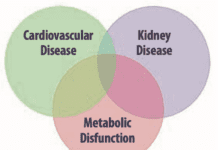Alarge new Spanish study has found that men who drink alcohol in almost any quantity are nearly one-third less likely to develop coronary heart disease (CHD). The results are also among the first to separate former drinkers from nondrinkers, thereby avoiding what skeptics of previous research dubbed the sick quitters error.
The findings, using data from the Spanish cohort of the European Prospective Investigation into Cancer (EPIC), add to mounting evidence that alcohol consumption protects against heart disease. Its not clear why drinking might be good for the heart, but experts have speculated that the mechanism might involve alcohols effects on clotting, insulin sensitivity, inflammation or HDL (good) cholesterol.
Alcohol consumption was also associated with a reduced risk of CHD among women in the Spanish study, but the results were not statistically significant. Researchers suggested this was due to the lower number of coronary events, such as heart attacks, among female participants.
Larraitz Arriola, PhD, of the Public Health Department of Gipuzkoa, and colleagues analyzed data on 15,630 men and 25,808 women, ages 29 to 69, who completed a detailed questionnaire on their diet, drinking, lifestyle and medical history. Over an average followup period of 10 years, the men suffered 481 coronary events and the women experienced 128. Researchers adjusted for known risk factors for heart disease such as obesity and smoking.
In men, moderate, high and very high alcohol consumption were all associated with more than 30% lower rates of coronary heart disease. Moderate consumption was defined as 5-30 grams a day of alcohol, high as 30-90 grams daily, and very high as more than 90 grams; in the US, a standard drink is defined as containing 14 grams of alcohol, though of course actual amounts vary. All types of alcoholic beverages were associated with reduced CHD risk. The link was weaker for wine drinking, but remained significant at higher consumption levels.
Some scientists have questioned whether the results from earlier studies showing heart-health benefits from alcohol might be confounded by abstainer error. By lumping former drinkers in with those whove always abstained, this thinking goes, results could be skewed by sick quitters-people whove recently stopped drinking due to illness, disability or frailty.
So Arriola and colleagues compared drinkers only to lifelong abstainers, analyzing ex-drinkers separately. Indeed, they found that people whod quit drinking were much less healthy at the studys start, more prone to hypertension, diabetes and cardiovascular conditions. By removing these former drinkers from the comparison, the researchers could be confident that abstainer error did not cloud their results.
Although the Spanish study found a reduction in mens CHD risk associated with even the highest levels of alcohol consumption, drinking too much has other risks. The Dietary Guidelines for Americans advises that if you do drink alcohol, you should do so in moderation: no more than two drinks a day for men, one for women. Count as one drink 12 ounces of regular beer, 5 ounces of wine or 1.5 ounces of 80-proof distilled spirits. Keep in mind, too, that alcoholic beverages contain liquid calories-about 100 in a glass of wine, 150 in a bottle of beer.
TO LEARN MORE: Heart, online before print, dx.doi.org/10.1136/hrt.2009.173419























